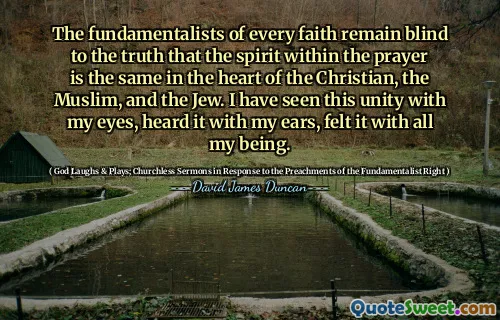
All human giving is fiction giving. Only the Absolute nonfictively owns; hence only the Absolute can nonfictively give; hence the mortal who believes that he or she owns, stands no chance of receiving what the Absolute has to nonfictively give.
This profound assertion challenges our conventional understanding of charity, ownership, and spiritual surrender. It emphasizes that human notions of ownership are illusions—fictions we cling to amidst the chaos of life. When individuals claim ownership over what seemingly belongs to them—be it possessions, achievements, or relationships—they alienate themselves from the genuine flow of giving and receiving that emanates from a higher, nonfictitive reality. The term 'fiction giving' illustrates that all human acts of generosity are inherently based on illusion; true giving—nonfictive giving—originates from the Absolute, a source beyond human illusions and possessiveness. Recognizing this distinction shifts our perspective from selfish accumulation to a more intuitive understanding of divine abundance. If we believe ourselves owners of resources, we block the divine channel through which true generosity flows. Conversely, releasing our attachment to ownership allows us to partake in the divine gift—an infinite, unconditional generosity. This perspective invites humility and surrender, suggesting that real abundance and sharing come not from human effort alone, but from aligning oneself with the divine source, which grants freely without expectation of return. The quote also urges us to question our sense of sovereignty—real ownership is an illusion, and recognizing this can liberate us from ego-driven struggles. Ultimately, it points to the importance of humility, surrender, and awareness of divine sovereignty as keys to authentic giving and receiving. This insight can transform how we approach relationships, resource management, and spirituality, revealing that the true flow of life and love originates beyond human constructs.







